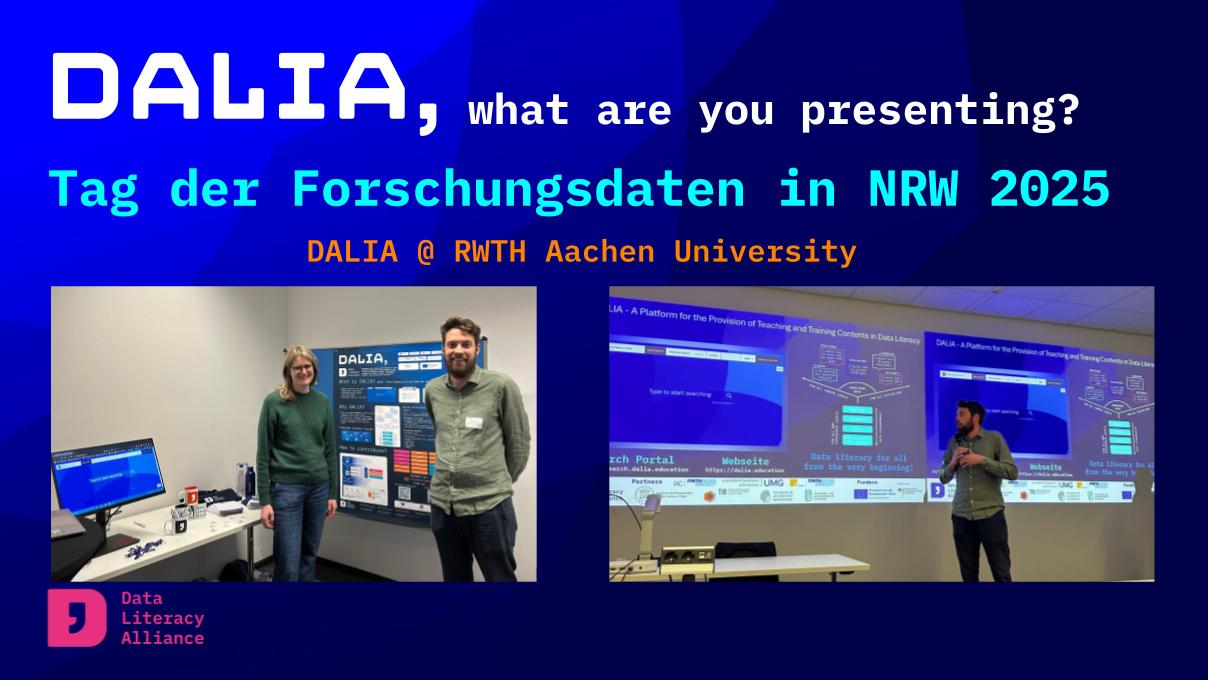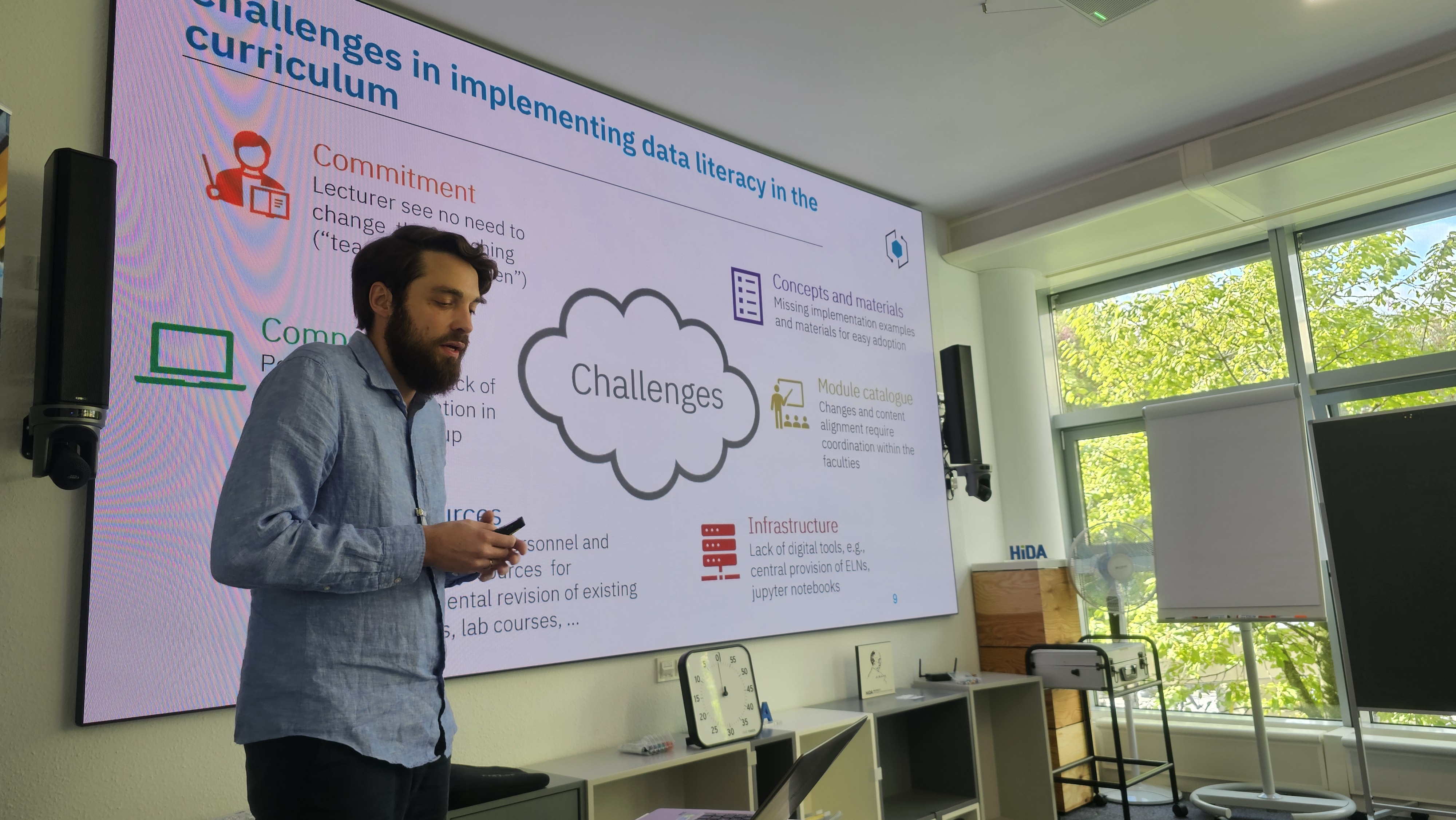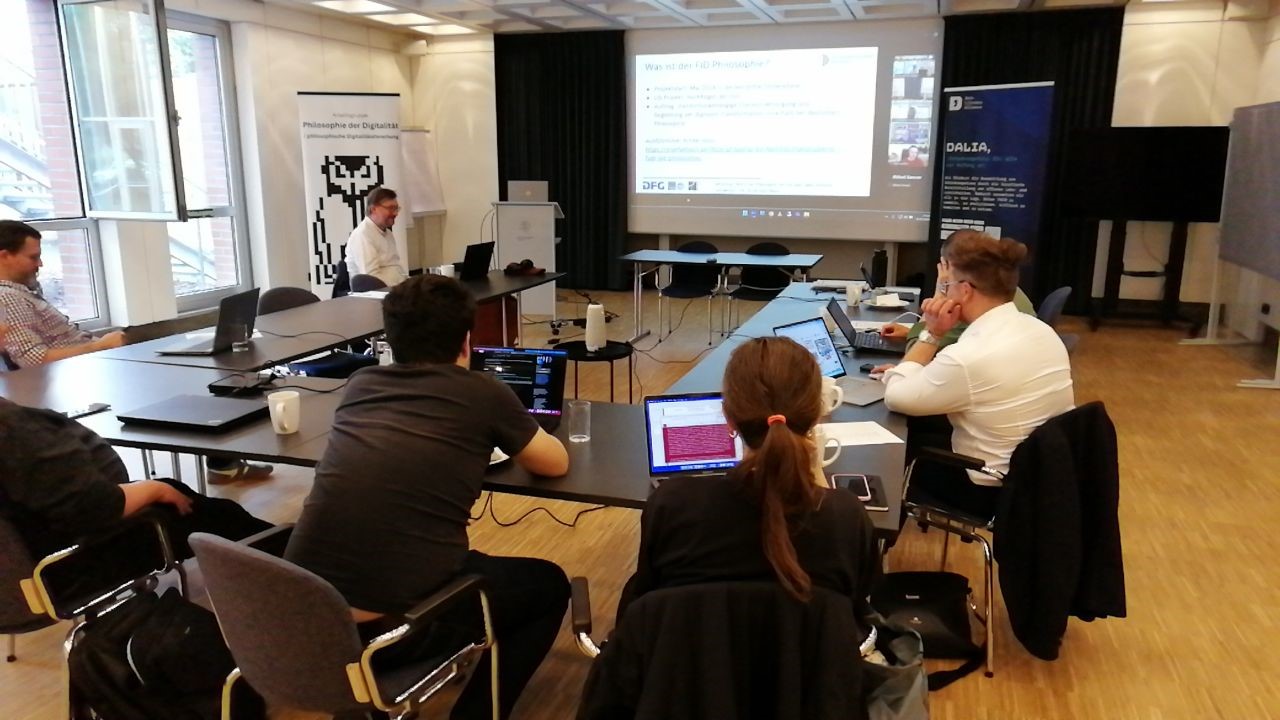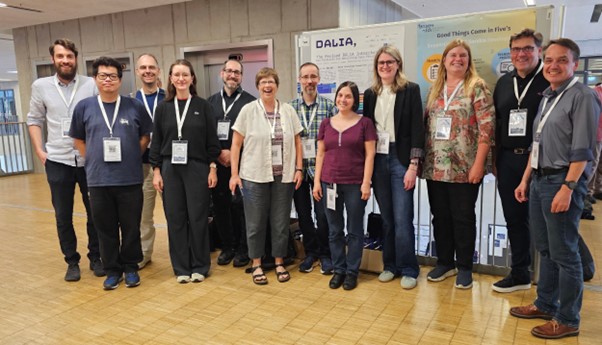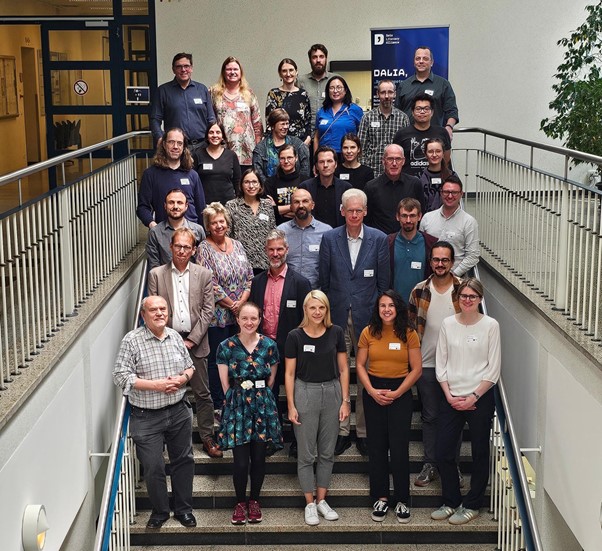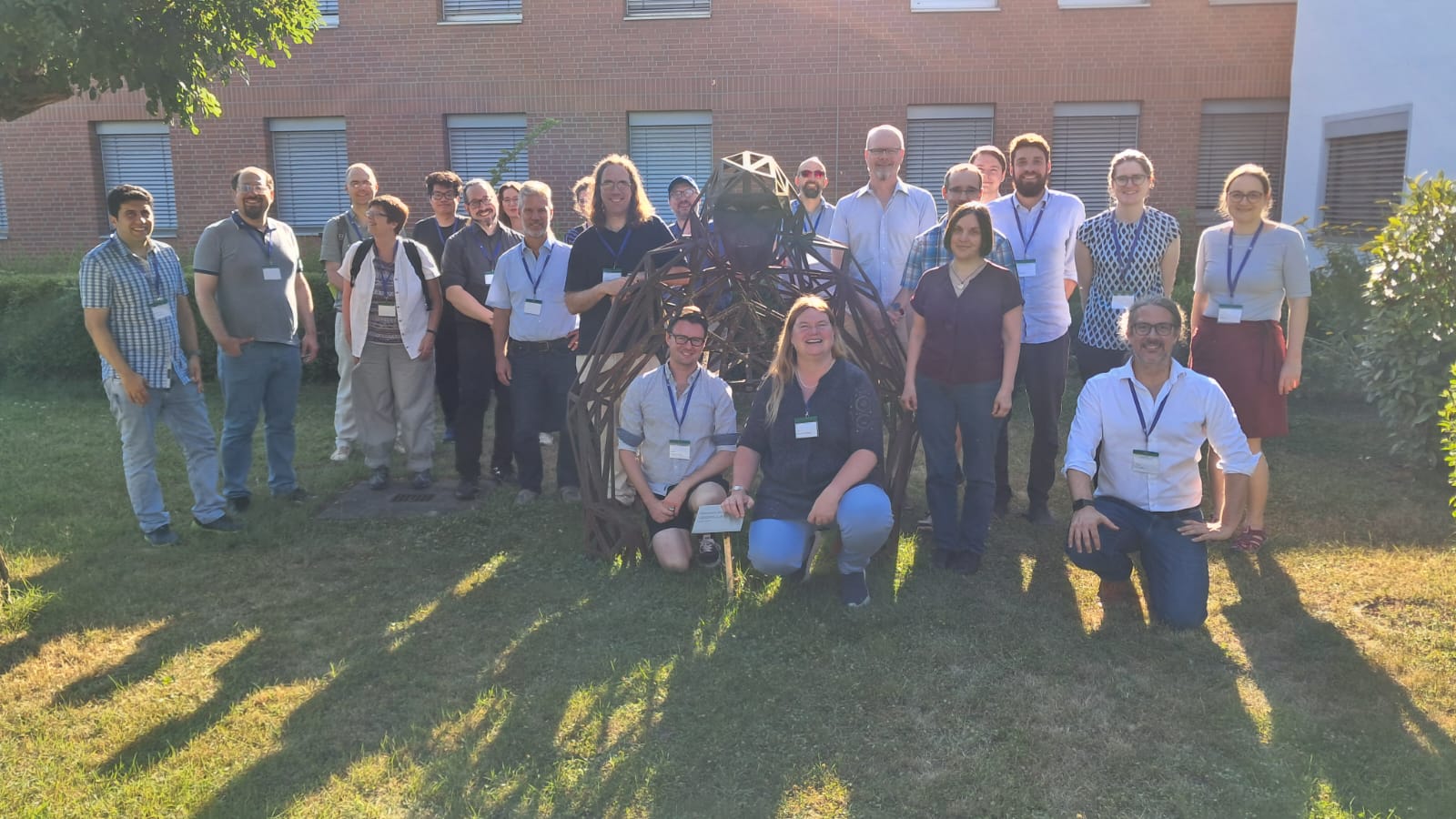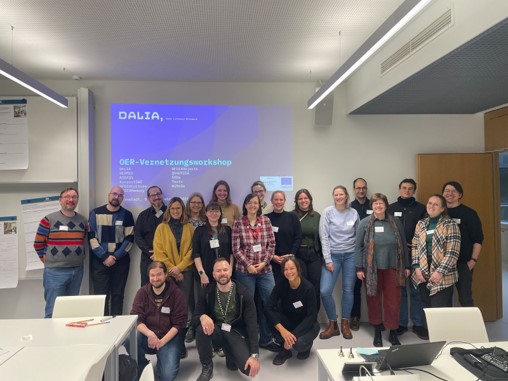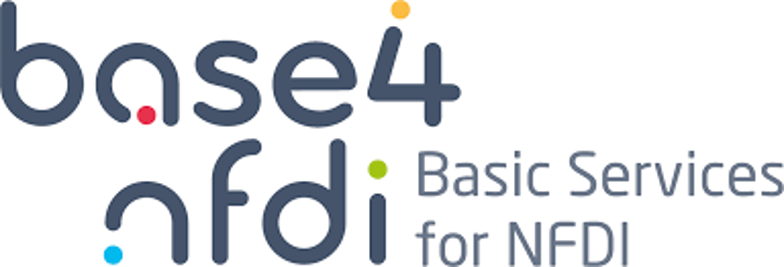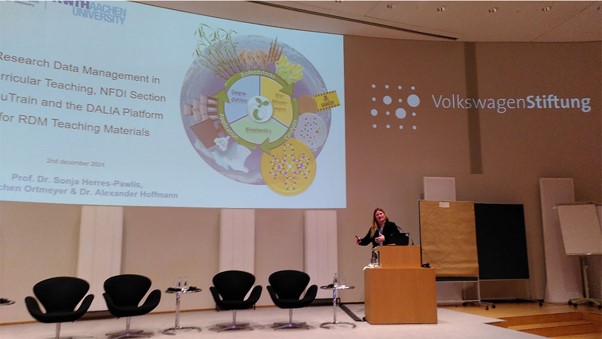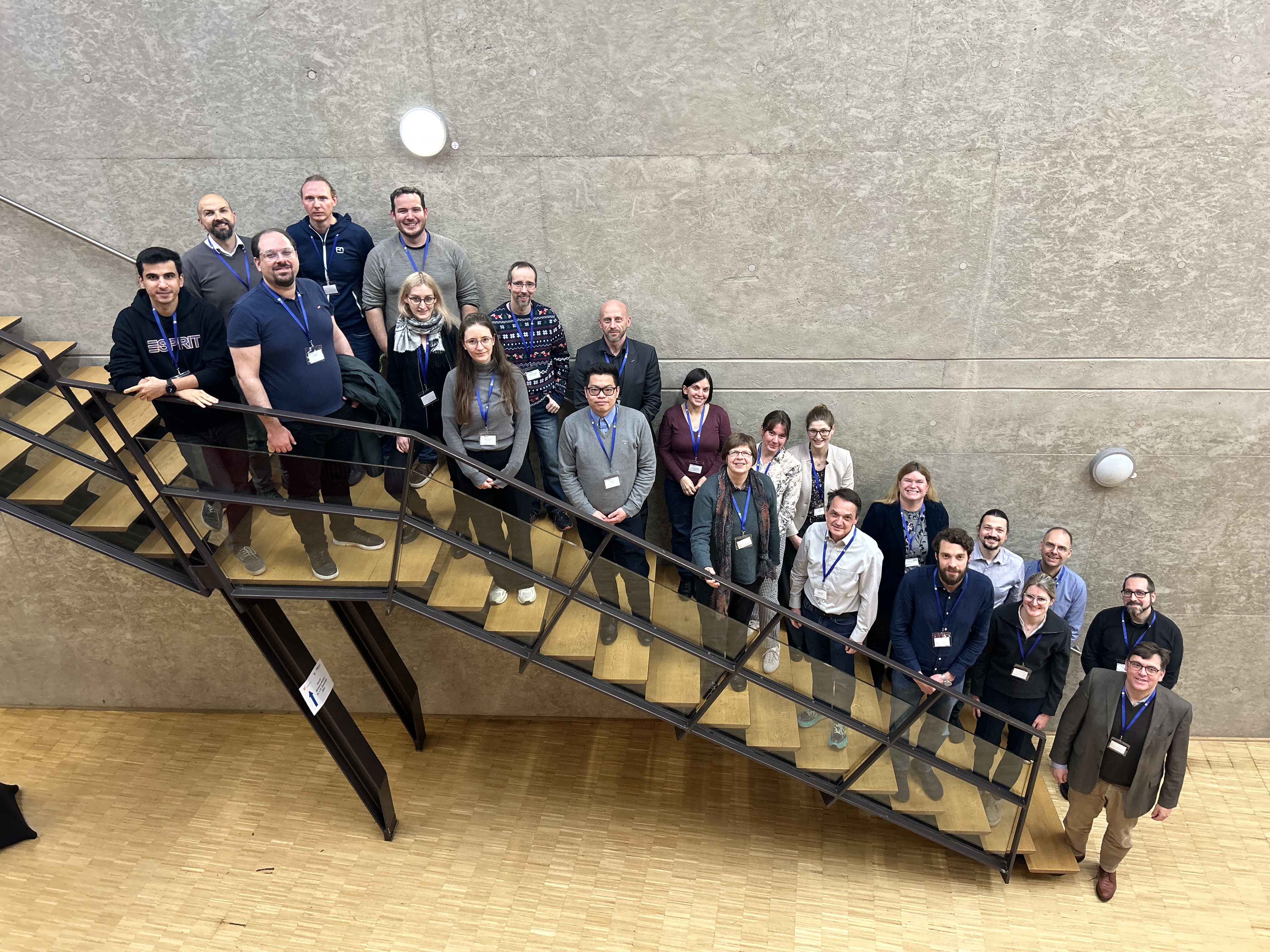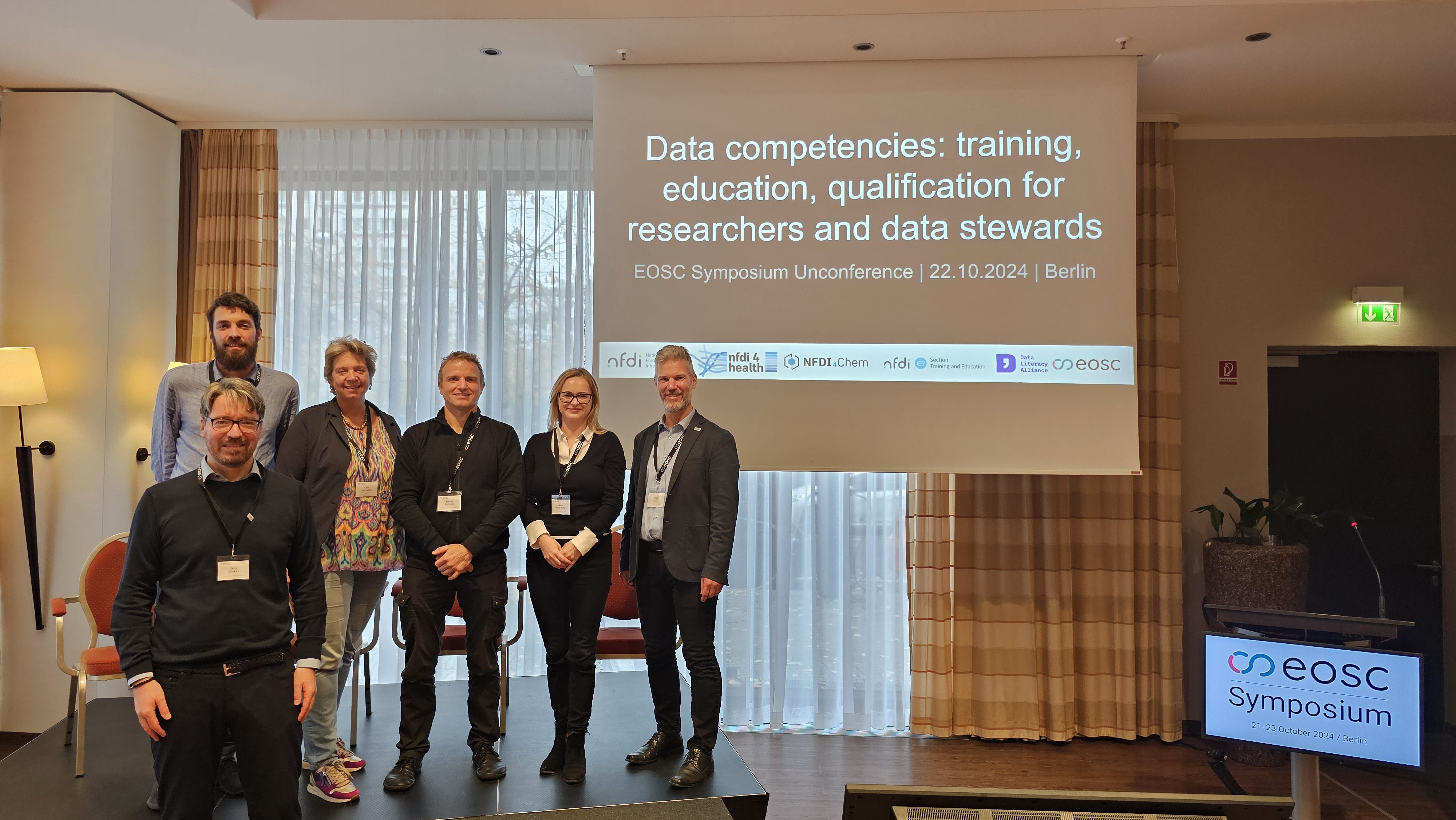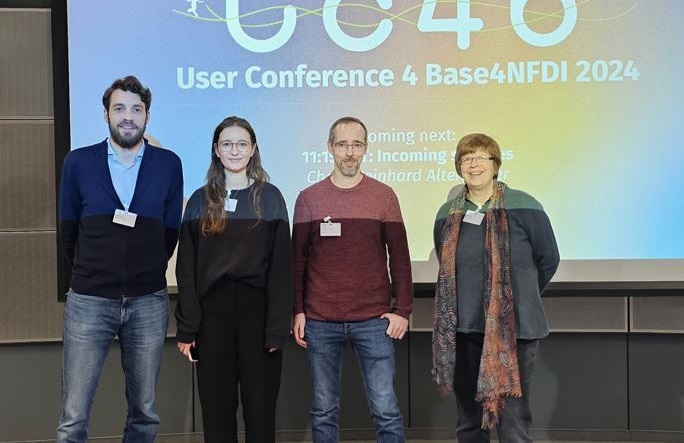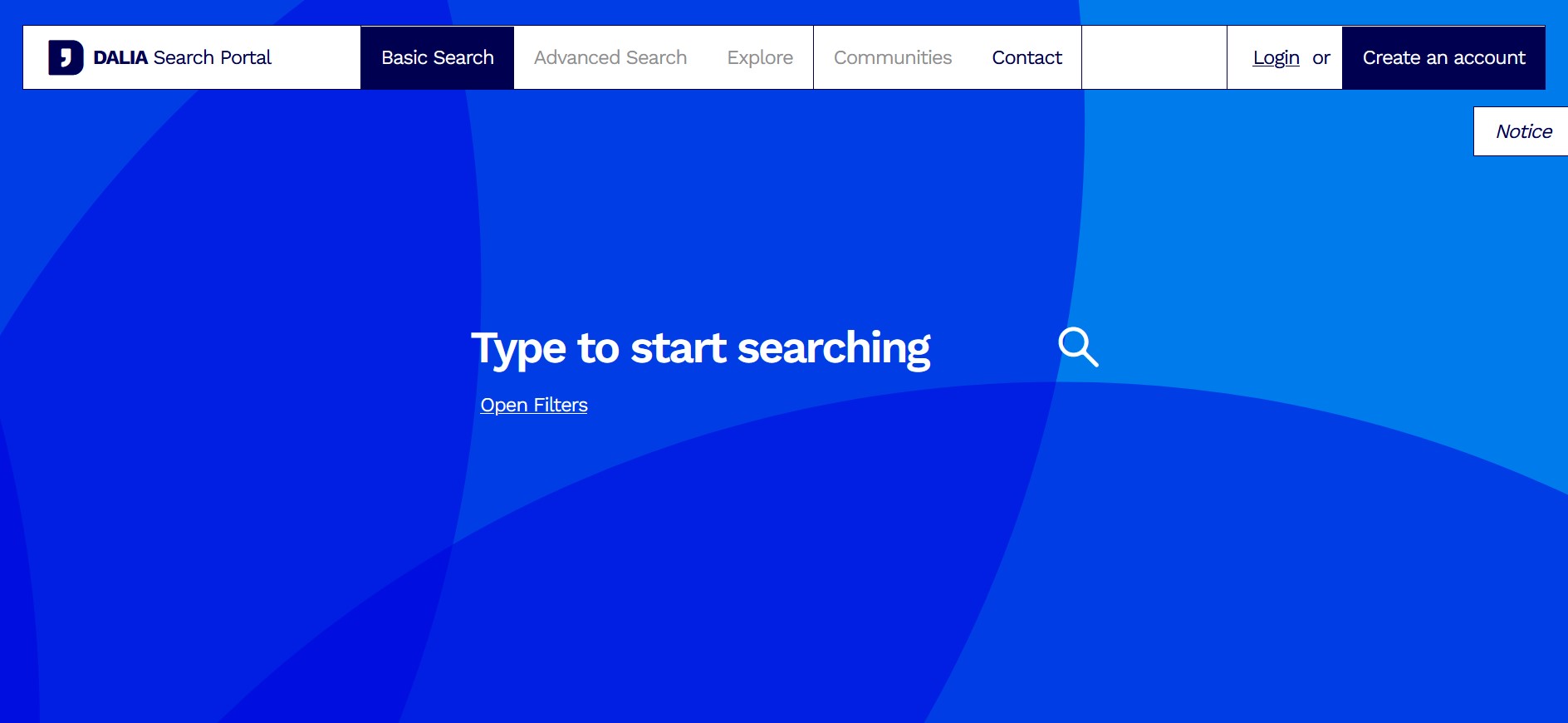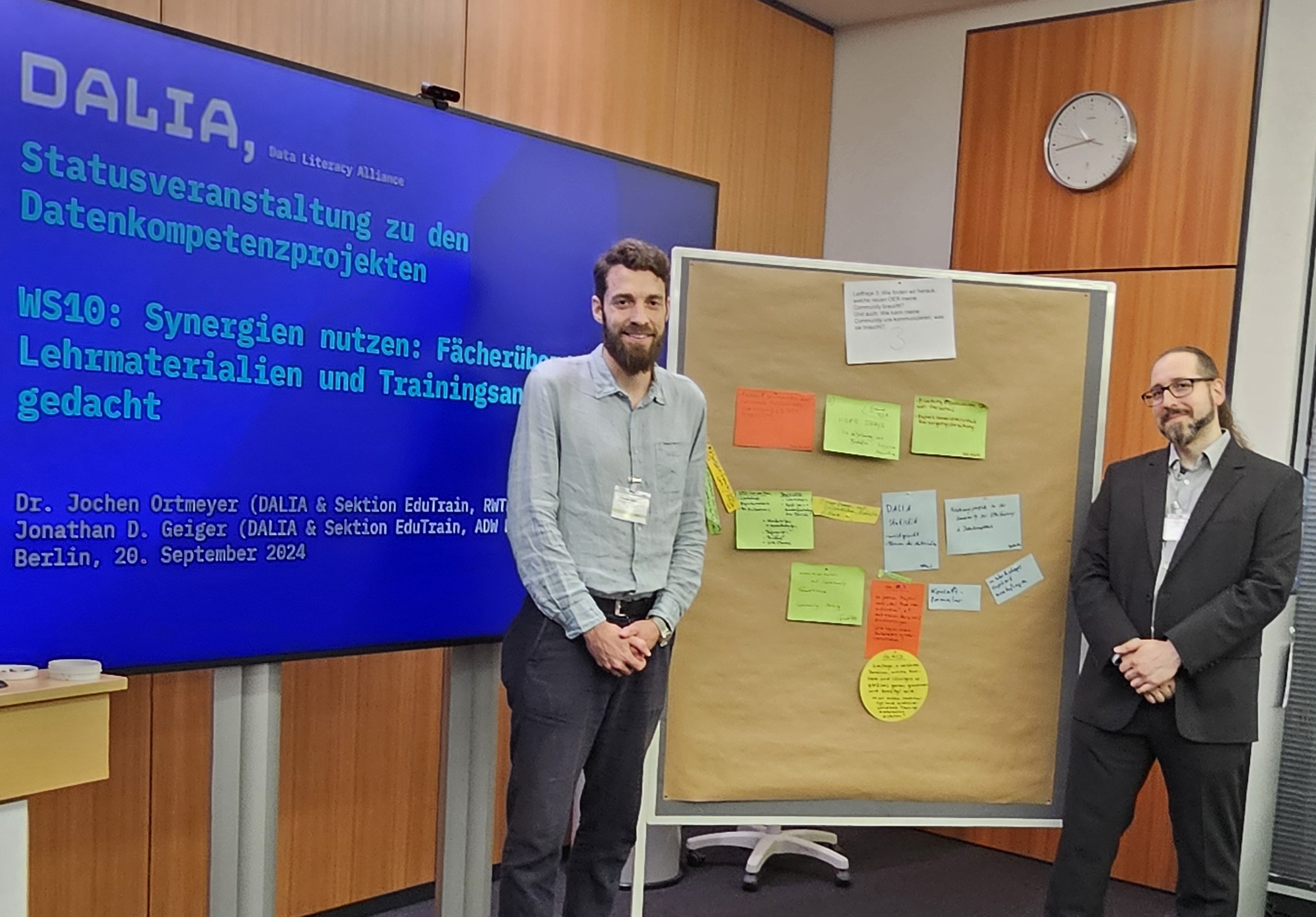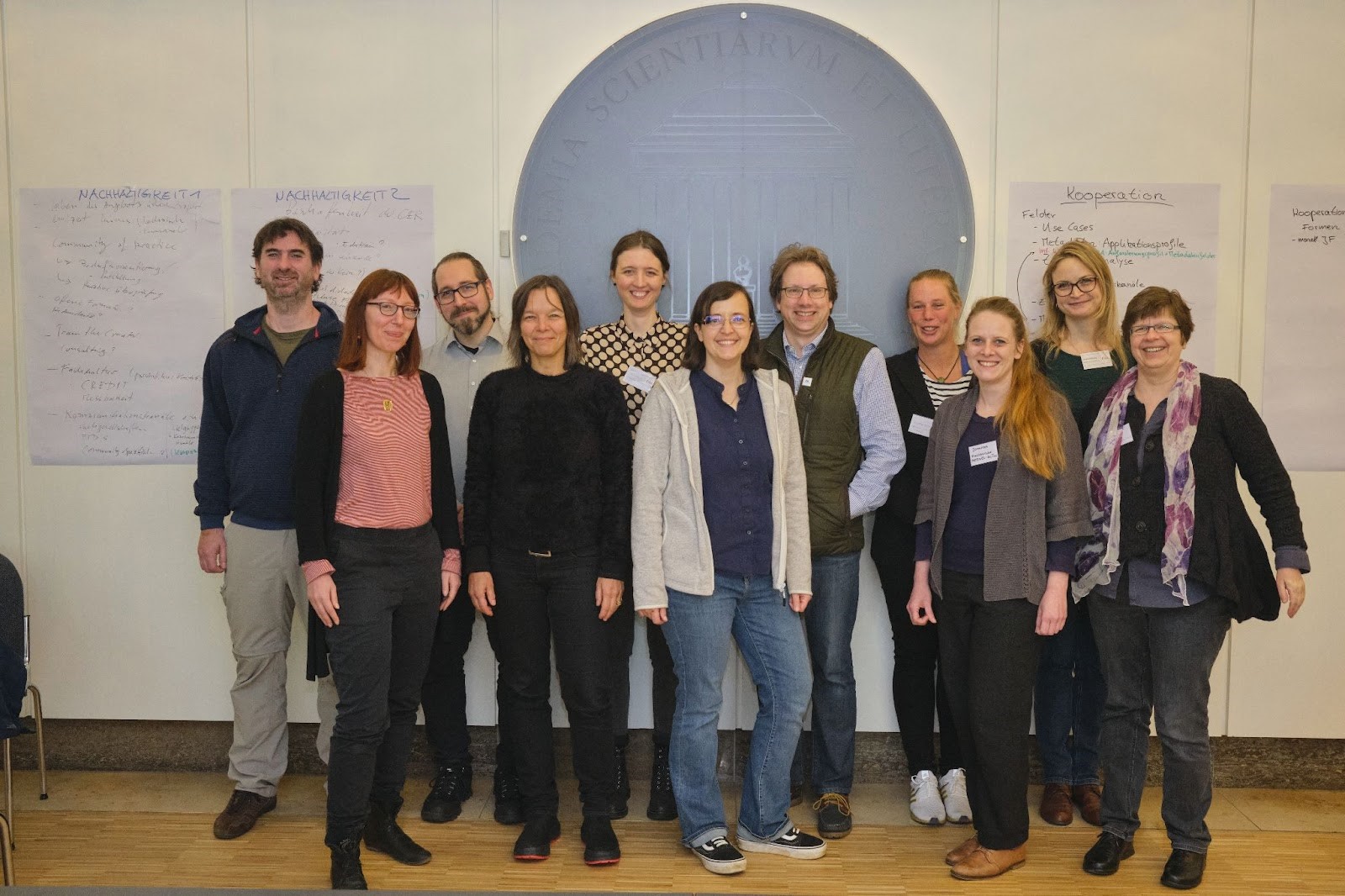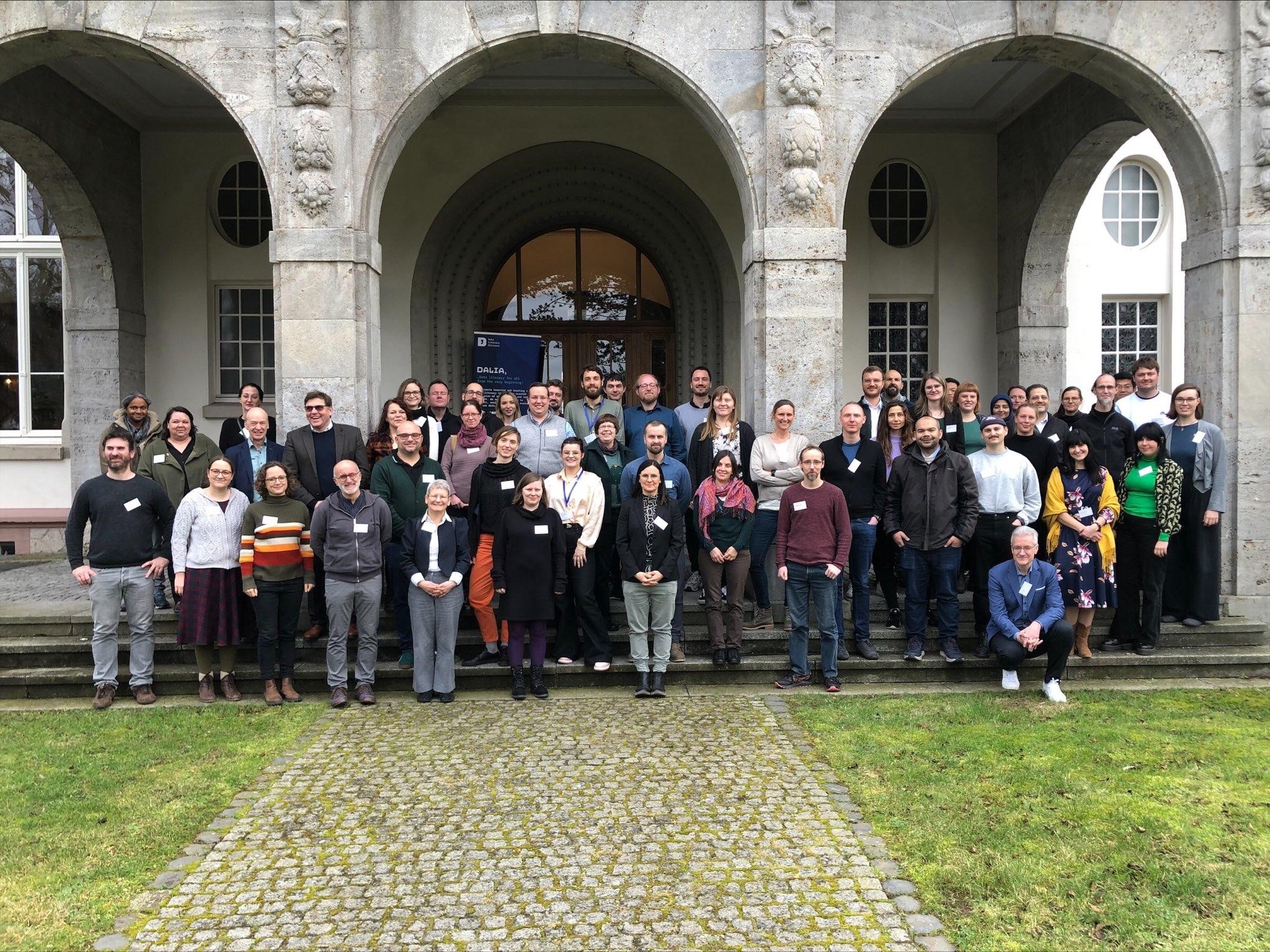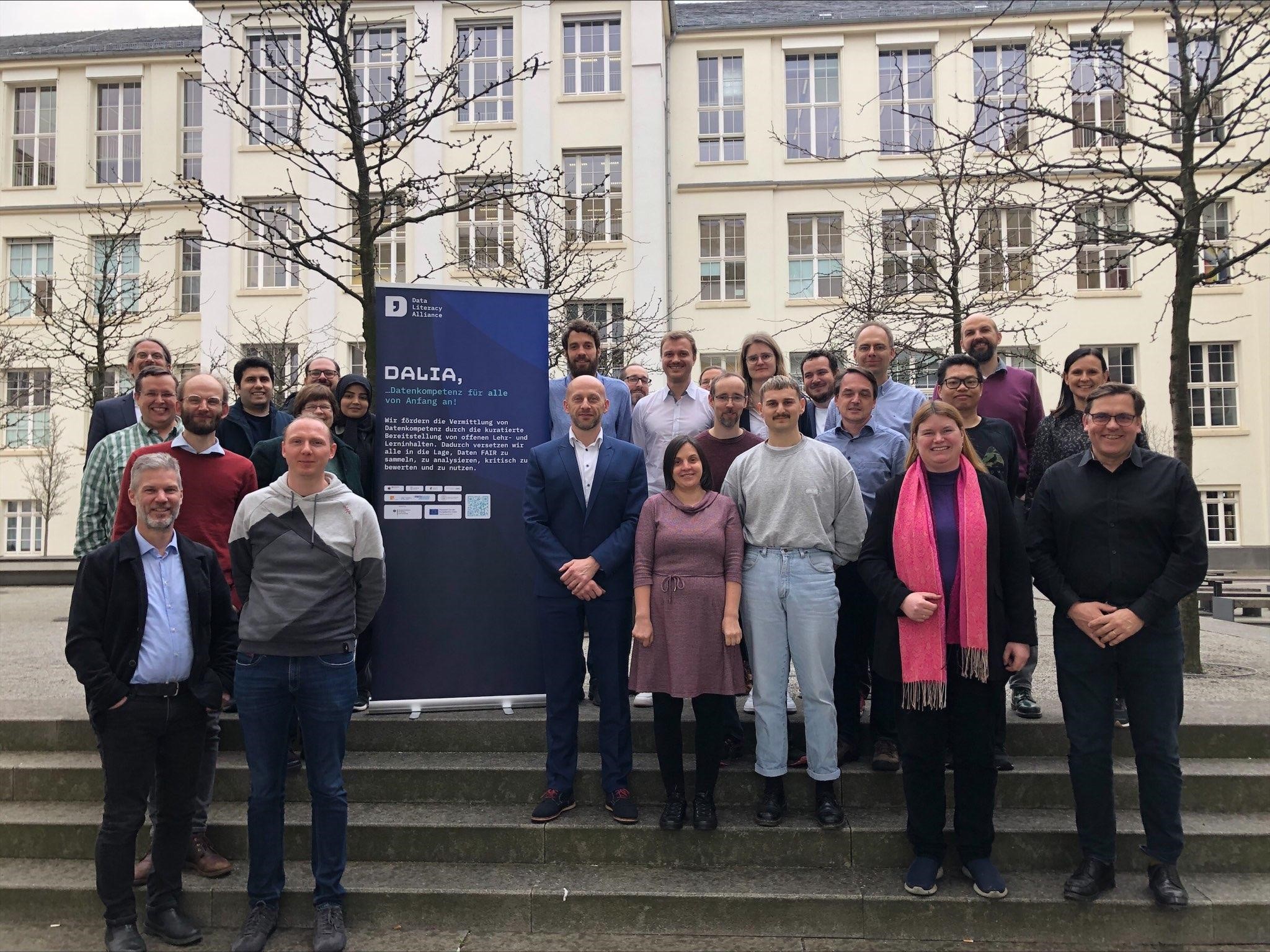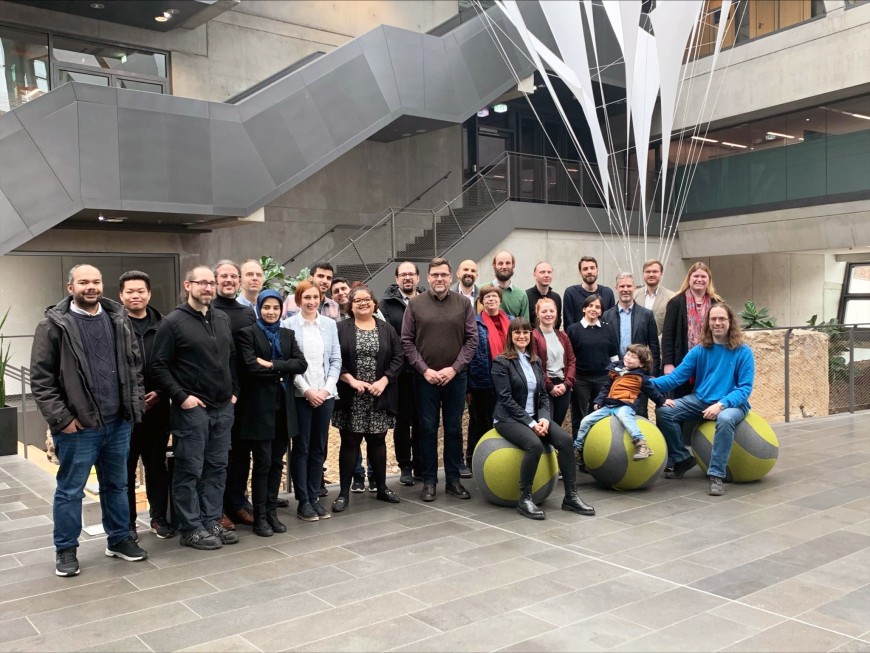DALIA at Research Data Day 2025 in NRW
This year's Research Data Day was all about “FAIR data, FAIR play: Just a matter of line-up” In the morning, an online panel discussion took place, focusing on how the work in the NFDI consortia and sections affects everyday research. Prof. Dr. Sonja Herres-Pawlis was able to contribute her experiences with the DALIA section service in addition to her work for NFDI4Chem and the NFDI Education & Training section. Under the motto “FAIRplay in Practice – DALIA” the DALIA project presented itself in the afternoon as part of the on-site event program at RWTH Aachen University in the RDM Service Arena with a poster and a flash presentation.
